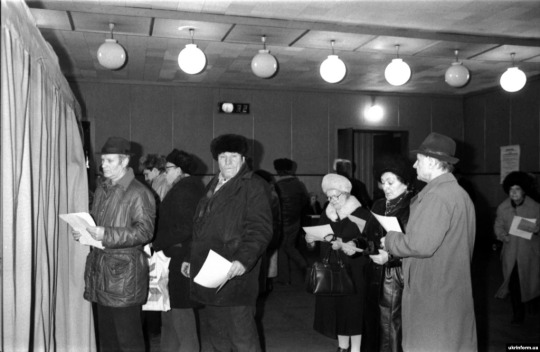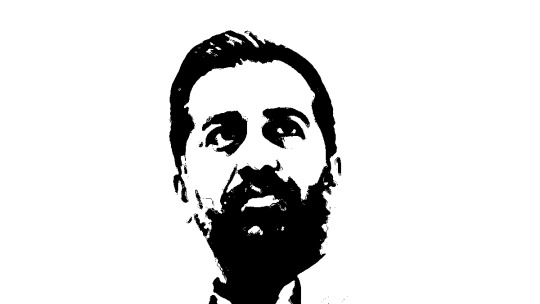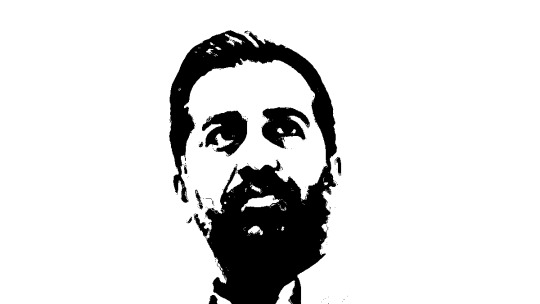#the Independence Referendum
Explore tagged Tumblr posts
Text

A crowd of people waving the flags of Ukraine and European Union in central Kyiv one day before the Independence Referendum on December 1, 1991
230 notes
·
View notes
Text
🇺🇦 33 years ago, on December 1, 1991, #Ukrainians overwhelmingly voted for independence in the All-Ukrainian Referendum. Over 90% of voters supported the Act of Declaration of Independence, marking a decisive step in Ukraine's journey out of the Soviet Union.
The question on the ballot was:
"Do you support the Act of Declaration of Independence of #Ukraine️ adopted by the Verkhovna Rada of Ukraine on August 24, 1991?"
✅ Yes: 90.32%
❌ No: 7.58%
With a voter turnout of 84.18%, every region from east to west, including #Crimea, chose sovereignty. The message was clear — Ukrainians wanted a free and independent state.
👉 The full history of #Ukrainian statehood-formation:




122 notes
·
View notes
Text
had a dream that i was on a beautiful sleeper train trying to track down a missing journalist called andrew who was rumoured to have transformed into a giant made of multicoloured horizontal slabs of clay. the train took me to ?the alps? where there was a whole group of the clay giants who had a Cultural Dislike of Visible Hands. except they very much did have hands themselves. so the giants would each try to cover the hands of the giant standing next to them with their own hands and ended up standing motionless in long lines of covered hands until they dried out and turned into mountains. never found andrew because he had turned into a mountain :/
#better than the night before last’s dream where greenland had an independence referendum and was then taken over by trump#who replaced the flag with a flag that was UGLY!!!!!!!!!!!!#dream tag#beeps
41 notes
·
View notes
Text
🧐 A new poll reveals Saskatchewan as Canada’s surprising separatist hotspot if the Liberals win the 2025 election. 🧐 Uncover the reasons behind this unrest and what it means for Canada’s future 👇🏻
#Angus Reid poll 2025#Canada#Canada 2025 federal election#canada news#Canada U.S. trade tensions#Conservative voters separatism#Mark Carney Liberal win#national unity crisis Canada#Pierre Poilievre Conservatives#Prairie province alienation#Saskatchewan independence referendum#Saskatchewan separatist sentiment
2 notes
·
View notes
Text
oml people in the notes of the nunavut post are saur stupid….. if you actually read the article and knew anything about politics you wouldn’t be asking this stuff. no nunavut isnt becoming their own country, there’s still 3 territories, its just that they have jurisdiction over all aspects instead of splitting control between the territorial and federal govs. both yukon and nwt have this power also, and have since the 00s. it’s called devolution. also the map that was put in the reblog is good but super misleading because that is nunangat ie inuit traditional territory, not the territory of nunavut. so no, none of quebec is leaving quebec (nor nfld or nwt). the significance of the move is that nunavut is the region of canada with the highest population ratio of indigenous people (~85% of residents are inuit) and by giving them total control is a fantastic act of land back and reconciliation. by allowing them control of resources especially, this will give the revenue directly to the territory instead of going via the federal government. and also the environmental benefits will be huge since there wont be project going against inuit wishes.
#there were multiple references to qc in the notes#which were either referring to nunangat or the referendum. which like shut uppp about the referendum#like this is big news but if nunavut was becoming an independent nation it would be MUCH bigger news#its great but its not unheard of since both other territories have done this too#also its hard as hell to become independent and the process wouldve been occuring for YEARS and we would’ve heard about it already#whereas i dont think most people were aware the devolution process was occurring (myself also!)#so. thats why it’s important and thats what’s happening and stop saying its a country#im a misinformation hater sorry#cdnpoli
4 notes
·
View notes
Text
In his eagerness to shoot down the idea of the 2026 election being about anything other than a win for his party, Seamus Logan does a decent job of deprecating the de facto referendum idea...
0 notes
Text
Opening Statement by ABG President at the Joint Consultation Moderator Meeting
Sir Jerry Mateparae, Distinguished Moderator, the Honourable James Marape, Prime Minister of Papua New Guinea, Foreign Missions, distinguished dignitaries, ladies and gentlemen. First I would like to thank you Sir Jerry for this most unique opportunity to present our case in this very historical meeting. It is a historical event because you are here on our invitation to broker this dialogue. It…

View On WordPress
0 notes
Text
Greenland heads to polls amid Trump's threats to 'take over' - The Times of India
WASHINGTON: US President Donald Trump again threatened to take over Greenland on Sunday (local time), as it headed to polls.On his social media platform Truth Social, Trump said that the US supported Greenland’s right to determine their own future, but it could also join the US if they wanted.“As I made clear during my Joint Address to Congress, the United States strongly supports the people of…
#Danish territory elections#Greenland economy and defense#Greenland elections#Greenland independence referendum#Greenland sovereignty#Inuit Ataqatigiit#Siumut#Siumut party#Trump Greenland takeover#US support for Greenland
0 notes
Text
If puigdemont escapes it will be so fucking cool
#like appearing today in front of the parliament give a speech in front of everyone and immediately leave?#god tier behavior#rn theyre looking for him#context: this man was president in 2017 he made an 'illegal' referendum to see if we wanted independence#(only illegal bc spain is a VERY democratic country)#anyway it was clear they were going to put them all in jail so a couple of them left to belgium and a couple stayed#the ones who stayed did go to jail for a long time and were judged based on lies#(and exaggerations apparently soap is a terrifying weapon)#anyways obviously they tried euroorders and like 5 different countries denied them#and today they are choosing an anti-independence anti-catalan president#(at least hes from the left but the catalan left agreed to vote for him and everyone is super mad#) and this guy he was supposed to come and vote but he has said that so many no one was sure if it would happen#and like. this man was supposed to be detained the minute he stepped foot in spain#but he made it to right in front of the parliament gave a speech and they were like ok now make a tunnel for him and he just left#everyone was very confused bc literally no one knew about this he was supposed to go there#but worth it#but now theyve closed like all cities and villages and we have to change the bus ticket💀💀#lets see if they let us#mine
1 note
·
View note
Text

pls if you’re calling me a facist at least come up with actual logical reasoning
#‘you only care about white trans people!!! that’s why you’ve made this post’ babe ive hated keir starmer for years#i campaigned for multiple pro-palestinian independent candidates + i’m brown like pls be serious#i called out labour literally 8 months ago when they all abstained on the snp referendum and have been saying fuck labour for the past 5yrs#i’ve campaigned for multiple pro-palestinian candidates + i’m black like pls do not try me today#alex talks
1 note
·
View note
Text
WHAT SHOULD WE DO WITH BOUGAINVILLE?
ANU-UPNG Bougainville Referendum Observer Team in Central Bougainville, November 2019. By Dr Joseph Ketan The voters of Bougainville had voted for Independence in November 2019 during the Referendum. I was there with an Australian National University team. We had many international and domestic observers. All reached the conclusion that the Referendum was peaceful and orderly. That is true, but…

View On WordPress
0 notes
Text
Awaiting the awakening
A plan is a set of steps leading to a predetermined outcome. what we are getting from the SNP leadership is not a plan. It is not a 'strategy for independence'. It is empty rhetoric.
After nine years of dither, delay and diversion, SNP loyalists would have us believe that party leader and First Minister Humza Yousaf has a real ‘strategy for independence’ and is set to be the man who will get the job done. Express the mildest scepticism about this claim and you will be denounced as an agent of the British state. Say you are unclear about what the strategy is and you will be…

View On WordPress
0 notes
Text
XXX3 December 1
xxx3 December 1 December is a month of wonder, joy, and celebration. It is a time when the chill in the air and the falling snowflakes create a winter’s dream, reminding us to slow down and savor the simple moments of life. The holiday season fills our hearts with love, peace, and goodwill towards all. December is a time for reflection, where we look back on the year gone by and celebrate the…

View On WordPress
#41st President#Antarctic Treaty#Australia#civil rights movement#December 1#Denmark#draft lottery#George H.W. Bush#Iceland#Independence#military activity#Montgomery Bus Boycott#Papua New Guinea#Rosa Parks#Soviet Union#territorial claims#Ukrainian independence referendum#United States.#Vietnam War
1 note
·
View note
Text
Ethnic nationalism - further thoughts
A comment on my Substack blog article yesterday prompted some further thoughts on the issue of ethnicity, particularly as this relates to Scotland’s constitutional issue. As this is a ‘hot topic’ I reckon these further thoughts might contribute to the debate and so I decided to republish them here. We can’t just hand over ethnicity. Nationality is different. It is a designation and so can be…
0 notes
Text
Awaiting the awakening
A plan is a set of steps leading to a predetermined outcome. what we are getting from the SNP leadership is not a plan. It is not a 'strategy for independence'. It is empty rhetoric.
After nine years of dither, delay and diversion, SNP loyalists would have us believe that party leader and First Minister Humza Yousaf has a real ‘strategy for independence’ and is set to be the man who will get the job done. Express the mildest scepticism about this claim and you will be denounced as an agent of the British state. Say you are unclear about what the strategy is and you will be…

View On WordPress
0 notes
Note
Wait I'm sorry if this is a really daft question, but can you elaborate more on what "taking ownership of our role in the greater British empire" means?
So my view is that independence for Scotland all boils down to responsibility. We want to be responsible for our own decisions and how we look after the people who choose to make this country their own.
The Scottish Independence Movement pre-devolution were portrayed by unionists as people who had let Braveheart go to their head.
The idea was that campaigning for Scottish independence was based on a manufactured misrepresentation of history and that we all harboured grievances that Scotland was oppressed by England.
Being told that was actually what they believed had an effect on some pro-independence folk early on took a 'Scotland never did anything wrong' stance.
That is both wrong, and incredibly misguided because other impressionable politics enthusiasts around the world adopted the whole 'Scotland never did anything wrong and it was all England'.
Which over the past 10 years since the referendum has made it incredibly difficult to be pro-independence online. Because pro-independence 'progressives' (and right-wing bad actors) who have never lived in Scotland have played up this stance and made it more difficult for us to have conversations.
TL;DR - Scottish independence is about responsibility. That means taking ownership of everything we did in regards to global colonisation and the slave trade. People arguing we didn't (supposedly on our behalf) are harming the independence movement.
237 notes
·
View notes